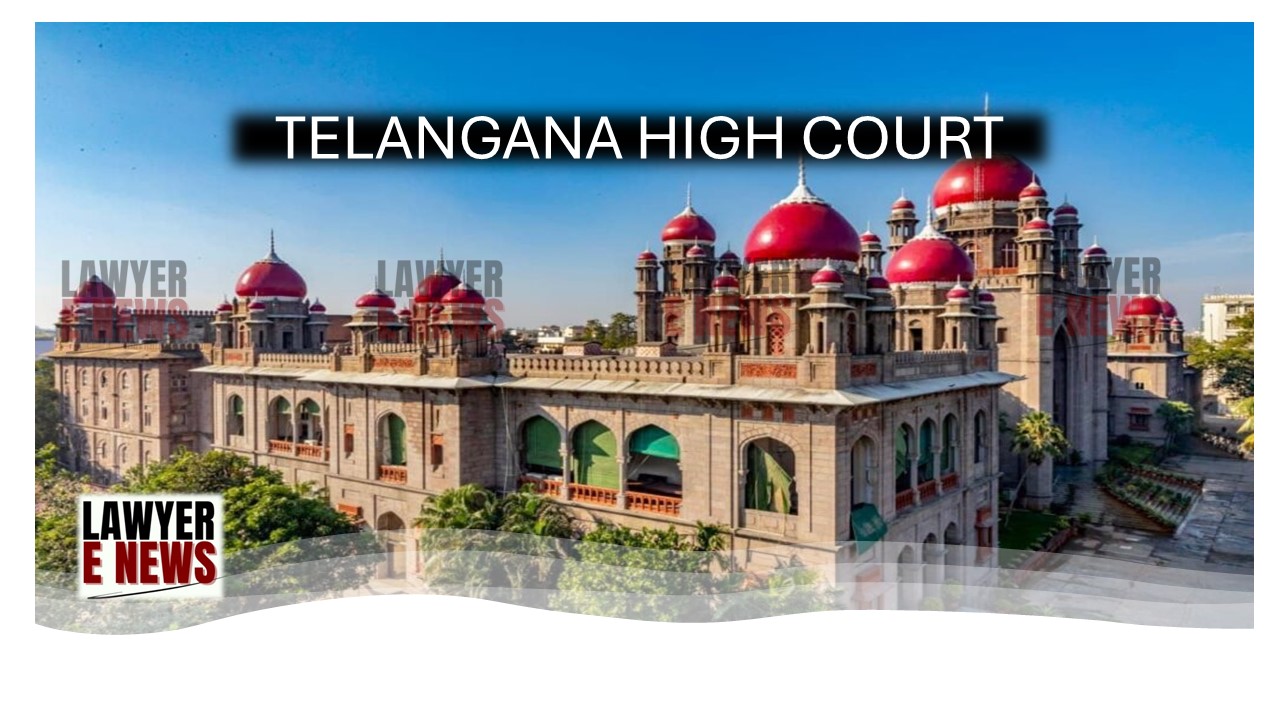-
by Admin
15 February 2026 5:35 AM



"Public appointments must adhere to constitutional principles. Regularizing contractual employees through backdoor methods violates Articles 14 and 16 of the Constitution," observed the Court.
In a landmark ruling delivered on November 19, 2024, the Telangana High Court struck down Section 10-A of the Telangana (Regulation of Appointments to Public Services and Rationalization of Staff Pattern and Pay Structure) Act, 1994, declaring it ultra vires. The provision, introduced to regularize contractual employees appointed without following statutory recruitment procedures, was deemed unconstitutional. The judgment, authored by Justice Sujoy Paul and Justice Namavarapu Rajeshwar Rao, emphasized the need for adherence to transparent recruitment practices and the rule of law.
A series of writ petitions were filed by unemployed youth challenging Section 10-A, arguing that it undermined the principle of equality in public employment. The petitioners, qualified candidates holding postgraduate degrees and other credentials, contended that the State government had bypassed statutory recruitment rules by appointing contract employees through opaque processes.
The contentious provision allowed the government to regularize such contractual appointments under certain conditions, including continuous service before the formation of Telangana and availability of sanctioned posts. This, the petitioners argued, contravened Articles 14 and 16, as it excluded eligible candidates from competing for public positions.
The Court criticized the State for disregarding statutory recruitment rules framed under Article 309 of the Constitution, observing:
"Public employment must follow a fair and transparent process. Section 10-A, introduced through an executive order, circumvents constitutional safeguards enshrined in Articles 14 and 16."
The judgment relied on the Supreme Court's decision in Secretary, State of Karnataka v. Umadevi, which categorically held that appointments made without adhering to statutory rules cannot be regularized. The Court noted:
"Regularization of employees appointed through backdoor methods is antithetical to the rule of law and violates the constitutional scheme."
The State argued that Section 10-A was introduced under the enabling provisions of Section 101 of the Andhra Pradesh Reorganisation Act, 2014, which allows for the adaptation or modification of laws. However, the Court rejected this defense, stating:
"The power under Section 101 permits adaptations to existing laws. It does not authorize the creation of new provisions that contradict statutory rules. Section 10-A does not merely adapt; it overrides existing service rules, which is impermissible."
Section 10-A began with a non-obstante clause intended to override conflicting provisions within the 1994 Act. However, the Court clarified:
"A non-obstante clause in one statute cannot nullify provisions in another. The Education Service Rules, framed under Article 309, take precedence over an executive order introduced under Section 101."
Disapproval of Backdoor AppointmentsThe Court condemned the practice of appointing contractual employees without advertising vacancies or inviting applications, terming it a violation of public policy:
"Appointments made in an opaque manner deprive qualified candidates of their right to compete. Such practices erode public trust and undermine meritocracy."
The Court further noted that the conditions for regularization under Section 10-A, such as continuous service before June 2, 2014, were arbitrary and excluded otherwise eligible candidates.
While declaring Section 10-A unconstitutional, the Court exercised its discretion to avoid terminating the services of already regularized employees, many of whom had served for over 15 years. The judgment stated:
"In cases where appointments have been regularized and employees have served for significant periods, terminating their services would cause undue hardship. However, no further regularizations should occur in violation of statutory rules."
The Court directed the State to ensure that future appointments adhere strictly to statutory recruitment processes, emphasizing:
"The State must fill vacancies through transparent and competitive processes, upholding the principles of fairness and equality."
This judgment serves as a strong reminder of the judiciary's role in upholding constitutional values in public employment. By striking down Section 10-A, the Telangana High Court has reinforced the principle that public jobs are not privileges to be distributed arbitrarily but opportunities to be secured through merit and due process.
Date of Decision: November 19, 2024
